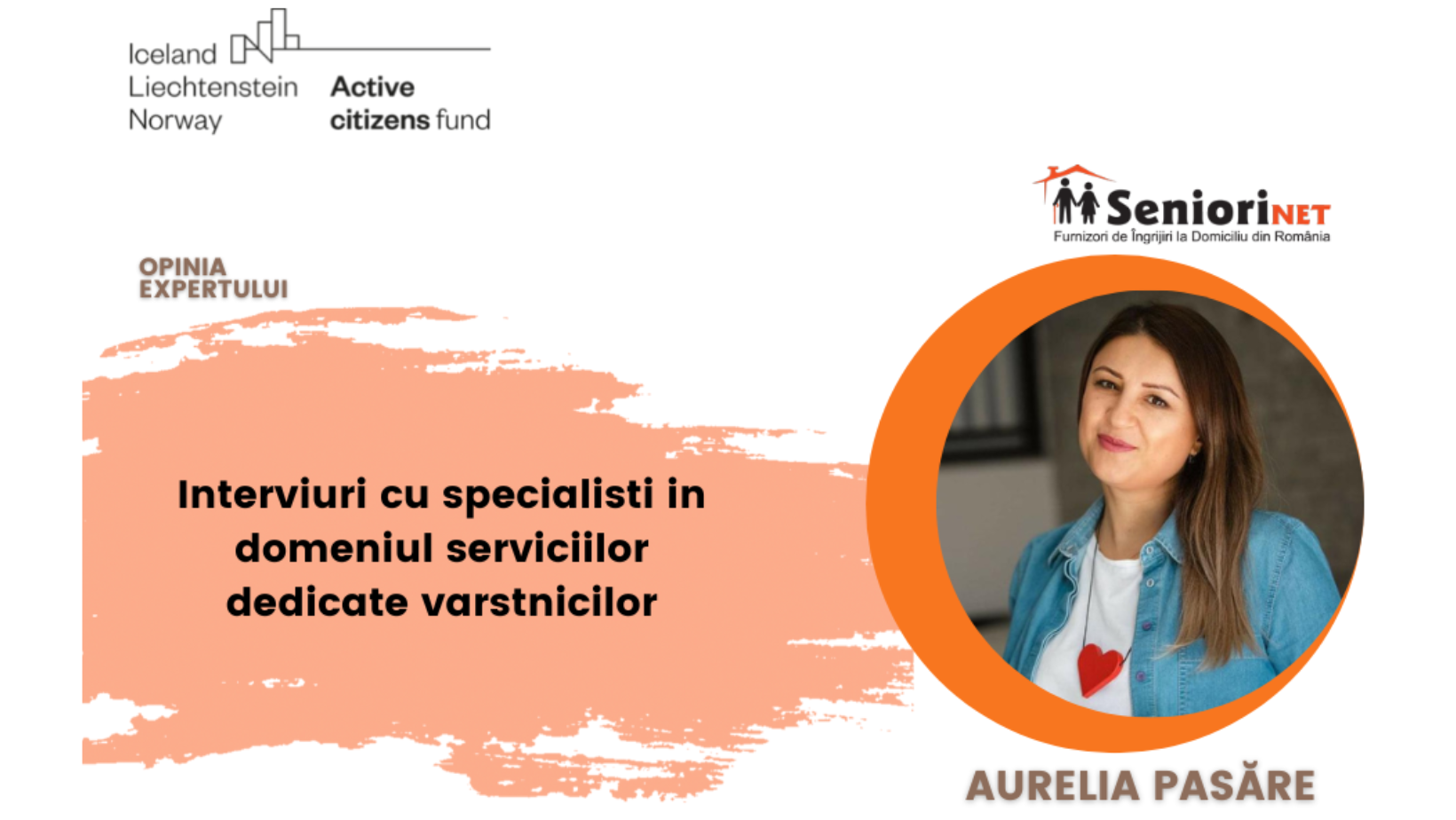Expert’s opinion – excerpts from interviews with specialists in the field of services for the elderly Aurelia Pasăre – President of Four Change Association
Q: How would you rate services for the elderly in Romania in 2021?
A: Services are insufficient and poor quality.
– Residential centres have more coverage because extended family or carers can afford more flexibility regarding area/distance.
– Day centres are few and belong to DGASPC or SPAS, they are in the form of senior clubs.
– Meals on Wheels – government voucher program whereby seniors especially in rural areas, receive food. Initially a food supplier was chosen and came every few days. Then products started to be delivered. This resulted in a social benefit, as the elderly were not able to cook the food.
– Home care is very much present in the centre of the country, also linked to the involvement of the Catholic Church. Under the “Community Grandparents” programme – POCU projects have been funded, the condition being that each project must provide a social or socio-medical service.
– There are also informal home care services: for example, in the north of Moldova, the village priest has mobilised several ladies to help the elderly in need in the community.
As for the work of non-governmental organisations, a number of SenioriNET members provide services for older people. Thus, FSC Bacău has a residential centre, home care, day centre … a wide range of services. In this case, the involvement of the municipalities plays an essential role. The White and Yellow Cross is the first accredited and authorised home care provider in Romania, with over 30,000 patients cared for. Caritas Alba Iulia has been doing social contracting since 2014 and is involved in communities through local authorities. Habilitas Association implements Erasmus projects for the elderly, innovating a lot on issues not yet widely addressed, such as trauma.
Q: Is there a need for a network serving NGOs working with older people in Romania?
A: There is definitely a need. I have been working in the sector since 2009. It is no longer possible for everyone to pull for himself. There is a need for representation. In SenioriNET there are also small organisations with 10 beneficiaries each. How can they go to the Ministry to talk about standards? This is even though they may be doing a great job in home care.
By setting up the network, we are talking about a stronger voice for beneficiaries and easier access to identify their needs. Each NGO member of SenioriNET has dozens, hundreds of elderly beneficiaries who can be consulted.
As for the needs of organisations, they are different: large organisations need partners, exchange of experience, to improve their team through training sessions; small organisations need coaching and mentoring, to be supported, to be able to identify opportunities and to be able to innovate.
Q: What areas should SenioriNET focus on in 2022-2026, from the perspective of representing NGOs working with older people?
A: I see the priority as strengthening the federation by attracting new members, developing a mechanism for membership fees, writing projects, service contracts. At the same time, it is important to raise the visibility of the Federation, and therefore the issues of older people, at local, central and county level.
Q: In terms of the formalisation and functioning of the network, what would be the three most important aspects for the network to develop, be stable, representative and functional?
A: We need to find solutions for human resources and time. In order to grow SenioriNET we need funding.
Q: From your experience of relevant coalitions and networks, what elements ensure their success/failure?
A: Involving people to get paid. We associate the network with a person who makes sure things work, and when they leave, the network risks dissolving.
Q: If you were to get personally involved in the network’s activities, what would motivate you?
A: I operate on the principle of “this is what needs to be done”. I had a good time when we had a strategic planning meeting in 2016 that we funded at the Association from an extension of a project. When SenioriNET was quoted in World Bank reports, SenioriNET was invited to meetings with representatives from the World Bank and the Ministry of Labour.
Q: How do you see the network in 5 years?
A: Very present in terms of consultation on the elderly, a functioning network and federation with its own projects, Board of Directors, people working for the most vulnerable social group – the elderly.

